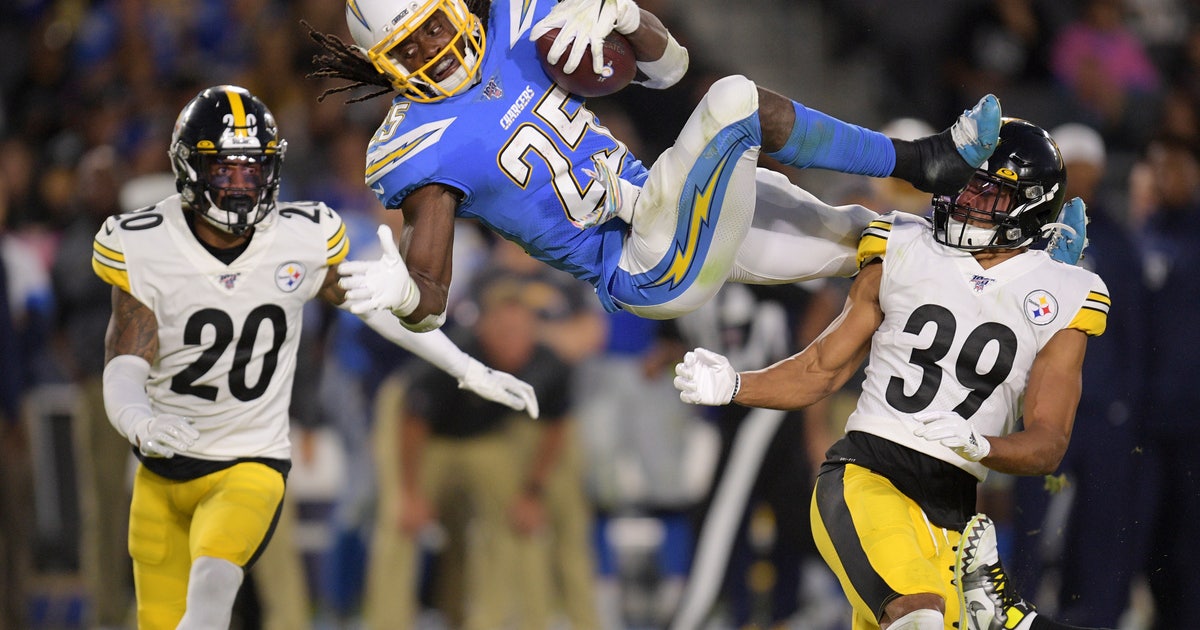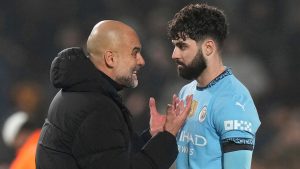Chargers ineffective run game a problem in loss to Steelers


CARSON, Calif. (AP) — The Los Angeles Chargers couldn’t hide their glaring shortcoming on Sunday, and the problem became even worse against the Pittsburgh Steelers.
The Chargers rushed for just 32 yards. In the entire game.
Pittsburgh stuffed the run en route to a 24-17 victory over the Chargers. The Chargers scored 17 fourth-quarter points to make things interesting, but the comeback bid was too little, too late.
The Chargers (2-4) were shut out in the first half of back-to-back home games for the first time since October 1975, some 44 years.
“We’re just not scoring,” quarterback Philip Rivers said. “Teams turn it over two times a game, and they win. Now, we can’t be careless with the ball. But we have to score. If you have two turnovers and you score 28, you can win. We’re not even talking about it. We’re talking about Hunter. When you turn it over and you’re not scoring and you get beat, you look for lots of things.
“Ultimately, we’ve got to find a way to get into the end zone. To me that’s the biggest issue we’re having offensively. Our job is to score one more point than the other team, and right now we’re not doing that.”
Rivers was under pressure all night. He completed 26-of-43 passes for 320 yards, two touchdowns and two interceptions. About the only thing that was working in the passing game, before the flurry in the fourth quarter, was when Rivers found tight end Hunter Henry, who played in his first game back from a knee injury.
Henry caught eight passes for 100 yards and two touchdowns. He also caught a 19-yard pass on the Chargers’ first play from scrimmage.
This was the Chargers first game without center Mike Pouncey, who is scheduled to have season-ending surgery this Friday.
“Losing Pounce is aways tough. He’s an all-pro center,” said Dan Feeney, who started at center for the Chargers on Sunday. “He’s a great player in this league. We just need to put up a little bit more on our backs as an O-line. Take a little more off Phil and the receivers. We’ve got to get this running game going.”
Melvin Gordon, in his second game of the season, was held to 18 yards on eight carries. Austin Ekeler had 14 yards on five carries. Ekeler had an 11-yard gain, for the longest run of the night. Last week, Ekeler had 15 catches — the most by a Chargers running back in 39 years — against the Broncos. This week, Gordon and Ekeler combined for just six receptions for 74 yards.
“Those guys are good in space, so we had to close down the distance,” Steelers linebacker Devin Bush said. “There were a couple times there was a lot of distance between the defenders. Something we can clean up.”
Ekeler came into Sunday leading the AFC in receptions and was third in scrimmage yards, averaging 116.6 yards per game. He had just 28 total yards from scrimmage on Sunday.
Gordon has just 49 yards on 20 carries in his two games since ending his contract holdout.
The offense had its struggles, but, the defense and special teams were equally bad.
The Chargers defense wasn’t without fault. In the second quarter, James Conner caught a short pass from quarterback Devlin Hodges — making his first start for the injured Mason Rudolph — and linebacker Jatavis Brown appeared to have Conner wrapped up near the sideline. He whiffed, and Conner ran the rest of the way to the end zone untouched for a 26-yard touchdown reception and 21-0 lead. The lead grew to 24-0 early in the third quarter.
With 32 seconds left before halftime, Chase McLaughin missed a 43-yard field goal that hit the left goal post. It was just that kind of day for the Chargers.
The Steelers had the ball for the first drive of the second half and the Chargers had four defensive penalties to help them extend that drive. To come out of halftime with those kinds of mistakes was baffling. Two were 15-yard penalties. The Steelers got a field goal out of that drive.
The Chargers overcame that rough second-half start to score 17 unanswered points in the fourth quarter, but it was not enough. And so much of the problem is not being able to establish the run game.
“The run game is tough right now,” Gordon said. “Austin and I can’t get things rolling. Right now, the passing game looks like it’s working, so we’re going to have to use the pass to open up the run. In some games, the run opens up the pass, but how it’s looking right now, the pass is going to have to open up the run.”







